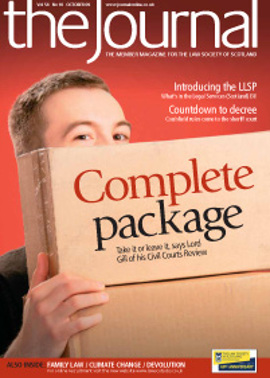The perils of posting

Actor Hugh Jackman recently found himself embarrassed by a Twitter post (“tweet”) which said he was in Sydney “having lunch on the harbor across from the Opera Center”. As the face of the latest marketing push to sell Australia to the world, many were naturally offended not only that he used American spellings, but also that he seemed to have forgotten the correct name of the famed Sydney Opera House. Jackman was forced to admit that his tweets were written by his publicist, and has since used Twitter to pledge $100,000 to charity.
In Los Angeles, a prosecutor was accused of acting unethically after he posted thoughts on a Louisiana murder case on his personal blog, and in Pennsylvania a trial was halted after it was discovered that one of the jurors was posting updates on deliberations on his Facebook profile.
Slightly closer to home, a bilingual secretary from Yorkshire was sacked from a British accountancy firm’s Paris office when it was discovered that she had a personal blog with 3,000 followers on which she was detailing her daily work life and lampooning managers, albeit anonymously. She later pursued a claim for unfair dismissal and was awarded £30,000.
No boundaries
Years ago, getting your opinions and thoughts into the public domain meant that they had to have sufficient merit to get past proofreaders, editors and publishers. Today, anyone can post anything online and it will be instantly viewable to millions of internet users worldwide, complete with appalling spelling mistakes, poor arguments, inadequate research, bias, and frequently outright lies. Freedom of speech means that there is little that can be done about ignorant people posting their half-formed opinions, but if online posts contain libel, breaches of confidentiality, obscene or illegal content, then there are likely to be consequences.
About 8.5 million people worldwide have a personal blog, and many companies (including LawCare) have one or more corporate blogs offering a friendlier face to their customers, with the opportunity for others to comment. Twitter offers the chance to post brief and simple updates on what you are doing, and Facebook and similar social networking sites take this a step further by allowing you to post photographs and interact with your friends. It’s easy to understand why these online tools are so popular, but important too to remember that it is a very public arena, and that you have little to no control over who reads what you post.
Best left unsaid
Following a few simple steps may help you to avoid the pitfalls and dangers of posting your thoughts and opinions on the internet:
Don’t write anything you wouldn’t want your boss, or your mother, to read. In fact, if there is anyone you would prefer didn’t read it, don’t post it.
Make good use of the spellchecker, and invest in a book about English usage, grammar and punctuation. Those reading your words – which may include your managing partner – will form an opinion of your level of intelligence based on your writing.
If you must write things which may be controversial, blog anonymously and keep all details vague enough to remain confidential. Don’t mention where you live, for example, or what type of firm you work for. Always remember, however, that you are still traceable to anyone determined enough to find you. Sites such as www.anonymizer.com can provide additional protection of your identity.
Even if you have chosen not to remain anonymous, never post personal details anywhere on the internet. These include your address, telephone number and email address.
Whilst it may be tempting to use your blog anonymously to expose unethical or illegal practice in your firm (as bloggers quite often do), this is not the same as reporting it. If it comes to light and your blog demonstrates that you were aware of it, you may still be considered complicit.
Don’t blog at work, even if you are having a slow afternoon. Unless it is a blog which you do as part of your job, it is an abuse of the firm’s resources and your paid time. If something happens at work you feel you need to write about, scribble it on a notepad if necessary and take it home with you to write up later.
Remember that you bear legal liability for the articles you write.
Once something is posted, it is permanently on public display. Even if you delete it, someone may have it cached, or may have printed it. Think twice before you press the “Publish” button.
Anna Buttimore is Administrator of LawCare, the author of three novels and two blogs – www.lawcarelife.blogspot.com and www.buttimoresbooks.blogspot.com.
LawCare provides free and confidential health support and advice for lawyers, their staff and families, across the UK and Ireland.
t: 0800 279 6869. e: www.lawcare.org.uk
In this issue
- The Combined Standard Clauses (2009 edition)
- Preserving a legal inheritance: settlement rights in the "Occupied Palestinian Territories"
- The European Court and the duty to investigate deaths
- Chief Executive's SGM address
- Shelter's online resources
- Musical copyright and contract
- The international swap shop
- Headline fortnight
- The Gill Report? What's not to like?
- Solicitor advocates and conflicts of interest
- Settlement in the West Bank
- Package deal
- RoS = economic value
- Defining the future
- Global leader?
- Dog's chance
- Coulsfield rules OK
- Money and your life
- Experts on the case
- At the hub, 10 years on
- Guardians: don't look to the Fund
- From the Brussels office
- Ask Ash
- Making the most of ABS
- Planning for growth
- The perils of posting
- ARTL: friend or foe?
- Where privacy prevails
- How was it for you?
- Agreeing rescues with creditors
- Adopting new solutions
- Divorce for gender change
- Scottish Solicitors' Discipline Tribunal
- Book reviews
- Website review
- A safe pair of hands tops the bill
- Law out of step






